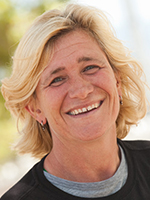Available March 15
Find New View EDU on Apple Podcasts, Google Play, Spotify, Stitcher, and many other podcast apps.
Societies depend on our ability to “play well together.” But at a time when there are so many perceived threats to our well-being from external forces, how can we convince leaders of the importance of play? And what unique value does play bring to our schools and communities? We tend to think of playtime as the province of young children. Jill Vialet, a social entrepreneur, author, visiting scholar at UC Berkeley, and founder of PlayWorks, has devoted her career to proving otherwise. In this episode, Jill joins Tim Fish and Lisa Kay Solomon to explain why the way we think about play as a part of our society deserves a second look. Drawing on her decades of experience working with schools and students, Jill argues that the basic skills and practices of play are the underpinnings of what makes people and societies successful. From learning to communicate, to assessing and surviving risk, to negotiation, compromise, and creative problem-solving, play is the natural platform that allows people to learn and practice important skills. Those skills, in turn, inform every part of our world, including how we work together and progress as a democracy.
We tend to think of playtime as the province of young children. Jill Vialet, a social entrepreneur, author, visiting scholar at UC Berkeley, and founder of PlayWorks, has devoted her career to proving otherwise. In this episode, Jill joins Tim Fish and Lisa Kay Solomon to explain why the way we think about play as a part of our society deserves a second look. Drawing on her decades of experience working with schools and students, Jill argues that the basic skills and practices of play are the underpinnings of what makes people and societies successful. From learning to communicate, to assessing and surviving risk, to negotiation, compromise, and creative problem-solving, play is the natural platform that allows people to learn and practice important skills. Those skills, in turn, inform every part of our world, including how we work together and progress as a democracy.Yet few leaders, whether in education or elsewhere, look at a challenge and respond with playfulness. And even in our schools, play has become increasingly sidelined over the years, particularly in the face of deep concerns over learning loss. Jill urges us to examine the inequities that are highlighted by the loss of play, the deep-seated attitudes and norms that lead us to reject playfulness, and the ways in which rejecting play as a fundamental underpinning of the human experience shortchanges our students and our communities.
Key Questions
Some of the key questions Tim and Lisa explore in this interview include:- What are the factors that have led schools to ignore or minimize the benefits of play? What do we lose when we remove or over-regulate play in our schools, not just for students but for staff as well?
- How can we broaden our definition of what “play” looks like, to help contextualize its importance to human and social development? Is seeking a new challenge or experiencing the rewards of deep focus on a project a form of play?
- Parents and school leaders often speak of “rigor” as a desirable ingredient for education. Is it possible for rigor and play to coexist? How can we build school environments to support that coexistence?
- How does play build the foundations of democracy? What skills and practices are gained through recess, boredom, or unstructured time that are relevant to being more civically engaged?
- What can play teach us about solving the very real challenges facing schools right now, like staffing shortages, uncertainty of purpose, equity issues, and teacher burnout?
Episode Highlights
- “We're not totally comfortable with silly. We are a culture that, you know, in many ways, still very much buys into sort of the Horatio Alger myth about pulling yourself up by the bootstraps and, you know, it's diligence and hard work that's going to overcome obstacles. … I just think teachers and people in schools are in a really difficult position.” (6:04)
- “I think one of the things that play tells us over and over again is, given the right sort of stepping stones to achieve that, kids are capable of quite rigorous negotiation and compromise and insight around how to take care of each other. So often, I would say, better than their adult counterparts.” (16:25)
- “I think our kids are amazing. And they are capable of so much and we need them so desperately to find their own agency and leadership. The very future of our planet is depending on their ability to do a better job than we have done. And so I feel like trust your gut, they can do it.” (19:45)
- “I guess I'm hoping that we come to recognize that actually the education of our youngest citizens is foundational to our ability to navigate the current challenges we seek, whether that's climate or misinformation or all the myriad things that are worrisome in this moment. That ultimately educating our young people well, it's, it's the only hope that we will actually address any of these challenges. But to do that, you need humans who are cared for as well.” (34:25)
Resource List
- Keep up with all of Jill’s work on her website: jillvialet.com
- Check out Jill’s organization, Playworks: http://www.playworks.org/
- Jill also founded the Museum of Children’s Art (MOCHA): http://www.mocha.org/
- And you can learn more about her work improving substitute teaching at Substantial Classrooms: https://substantialclassrooms.org/
- Find out where to get Jill’s books: https://www.jillvialet.com/books.html